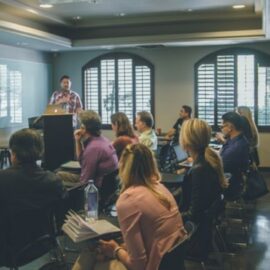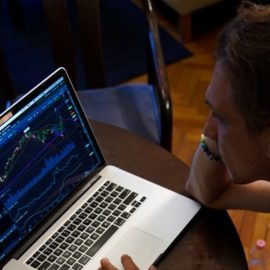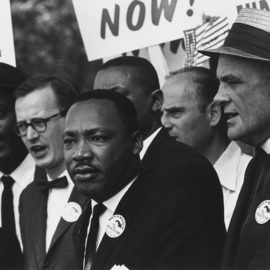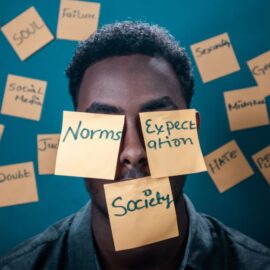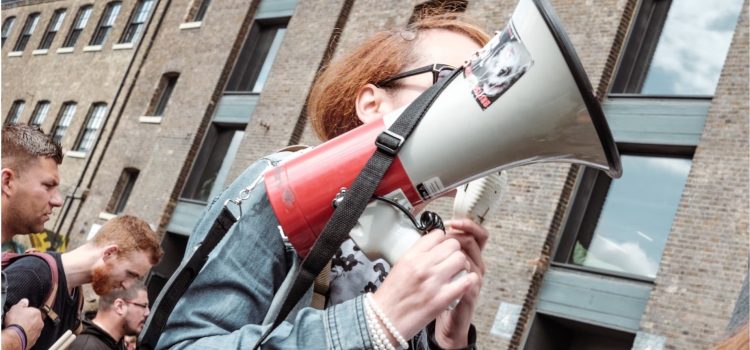
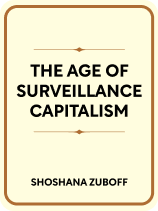
This article is an excerpt from the Shortform book guide to "The Age of Surveillance Capitalism" by Shoshana Zuboff. Shortform has the world's best summaries and analyses of books you should be reading.
Like this article? Sign up for a free trial here.
What is neoliberal capitalism? What is the underlying ideology? What’s the connection to surveillance capitalism?
Author and Harvard professor Shoshana Zuboff claims that neoliberal capitalism is one of the contributing factors to surveillance capitalism, where big tech companies monitor and manipulate user behavior. In her book, The Age of Surveillance Capitalism, she explains the connection and consequences.
Keep reading to learn what neoliberal capitalism is and how it endangers personal freedom, according to Zuboff.
Neoliberal & Surveillance Capitalism
Zuboff argues that surveillance capitalism was born out of a specific set of conditions—a perfect storm of factors that gave birth to a new technological philosophy. One of these conditions is the rise of neoliberal capitalism.
Definition of Surveillance Capitalism
According to Zuboff, surveillance capitalism is an emerging form of capitalism in which companies harvest data about our behavior, make predictions about our future behavior using that data, and sell those predictions for profit.
(Shortform note: Zuboff first invented the term “surveillance capitalism” in 2014. She used it in a paper exploring the future of Big Data and how we have both the power and responsibility to shape it how we want to. The paper was the precursor to many of the ideas discussed in The Age of Surveillance Capitalism.)
Zuboff explains that although most of us are aware that big tech companies are doing something to us, we aren’t capable of understanding the situation’s complexities, implications, or magnitude because it’s entirely unprecedented—we have no other event in history to compare it to.
Zuboff explains that companies often collect information without the knowledge or meaningful consent of their consumers. Additionally, they invade personal spaces—both physical and psychological—to do so.
For example, she says that even when we’re inside our homes, devices like TVs, thermostats, and even mattresses are monitoring and delivering information about what we say and do to company computers. In addition, companies can analyze metadata—like how often you change your profile picture—to determine extremely specific information that you never intentionally disclosed, such as whether or not you have depression.
Neoliberalism’s Threat to Freedom
Zuboff explains that the anti-regulation mindset of neoliberal capitalism contributed significantly to the inception of surveillance capitalism. Following WWII and the height of the Cold War, the Western world—in particular the US and UK—was in the midst of an economic downturn. In addition, these countries were extremely wary of the governmental control underlying totalitarianism and communism in other parts of the world. As a result, the people of the US and UK began calling for more democratic participation and equal rights for marginalized groups.
As a solution to both the economic decline and the public’s demand for less governmental authority, neoliberal economists began to advocate for radical free-market capitalism based on Friedrich Hayek and Milton Friedman’s economic theories. They pushed for an unimpeded market where competition would reign free, and deregulation and privatization would replace government oversight, labor unions, and government-owned corporations.
While the US never adopted an entirely free market in practice, the essence of neoliberal capitalism took hold of the economy. Zuboff says that by the 1990s, the idea of self-regulation grew out of the absence of government regulation. Companies gained the ability to oversee themselves, which set up ideal conditions for Google to experiment with the data it had been collecting about people in whatever way it saw fit.
| The Ties Between Economics and Politics As Zuboff explains, neoliberal capitalism grew in popularity because of how it seemed to address the public’s political concerns following WWII and the height of the Cold War. However, she doesn’t explain exactly why economists like Hayek and Friedman believed that neoliberalism was the answer to the public’s fears of governmental control and the lack of a political voice. In Friedman’s book Capitalism and Freedom, which details his economic theories, he argues that economic freedom is essential to political freedom. This is because being able to choose which goods and services satisfy one’s individual needs puts significant power in the hands of the people, rather than the government. In other words, free markets give control of the economy to the public, thereby checking the power of government, maximizing individual freedoms, and preventing the oppression of individual rights. However, one could argue that Friedman’s assertion that economic freedom gives control back to the public is misleading due to the existence of monopolies, which are a product of free, unimpeded markets. A monopoly is when one person or organization becomes the only supplier of a product or service. Without competition, they can control prices and therefore the market itself. When monopolies have total control, it undermines the benefits of a free market outlined in Friedman’s argument, as the power is in the hands of a few corporations rather than distributed among the people. Therefore, perhaps neoliberalism wasn’t the answer to people’s fears that economists claimed it was. |

———End of Preview———
Like what you just read? Read the rest of the world's best book summary and analysis of Shoshana Zuboff's "The Age of Surveillance Capitalism" at Shortform.
Here's what you'll find in our full The Age of Surveillance Capitalism summary:
- The methods big tech companies are using to watch you
- How surveillance capitalism can thrive despite opposition
- How to prevent it from destroying our freedom and democracy


